Nº 19 - Año 2006
TÍTULO:
El concepto de España en la historiografía visigoda y asturiana.
AUTOR:
Alexander Pierre BRONISCH
PÁGINAS:
9 - 42
PALABRAS CLAVE:
Reino visigodo de Toledo, Reino de Asturias, Historiografía visigoda y asturiana, autoimagen. Hispania, tradición visigoda, legislación visigoda.
RESUMEN
Isidoro de Sevilla y Julián de Toledo fueron los dos historiógrafos que usaron, cada uno en una situación política peculiar, la denominación Hispar¡ia como si fuera un sinónimo para el Reino visigodo de Toledo, si bien esta idea no pudo imponerse frente a la fórmula fija de rex, gens vel patria Gothonun que se aplicaba en documentos oficiales cuando se quería definir lo que hoy día llamamos "estado". No obstante, lo que Isidoro y Julián propusieron tuvo gran importancia para el desarrollo de la visión que tuvieron los contemporáneos sobre los mecanismos de relación entre Dios, el rey, el pueblo y su reino. Esta visión fue tan fuerte que influyó en decisiones importantes de la iglesia y de los reyes. Sirvió también como modelo de explicación para el ocaso del reino godo en época asturiana. En la historiografía asturiana se ve que este antiguo modelo se aplicó frecuentemente en los capítulos de las crónicas que pertenecen a las partes más antiguas, mientras en los capítulos posteriores a finales del siglo IX y principios del siglo x casi ya no se nota el influjo de aquellos antiguos conceptos. Hispar¡ia pasó de ser un concepto para denominar el perdido reino de los godos -incluyendo, pues, toda la Península Ibérica- a un sinónimo exclusivo de la zona dominada por los musulmanes.
ABSTRACT
Isidore de Seville and Julian of Toledo, each in a particular polítical context, were the two historiographers who used the term Hispar¡ia as a synonym for the kingdom of Toledo. This innovation did not come to replace the traditional estahlished formula rex, ge118 vel patria Gothorum. used in official documents to define what we nowadays would call the state. Nevertb.eless Isidore and Julian's term had an important influence on the development of their contemperarles' understanding of the relationship between God, the king and his people. This concept was so strong that it influenced important decisions within the church and the monarchy. In Asturian times it even served as a means of explaining the destruction of the Visigothic kingdom. One can observe in Asturian historiography that this term was frequently used in the older parts of the chronicles, whilst in the newer ones from the end of the 911o and beginning of the 1 O"' century its influence can hardly be detected. Hispania changed from being a term for the lost kingdom of the Goths -that had included the whole lberian peninsula- into an synonym exclusively for the region dominated by Muslims.
-
Nº 27/28 - Años 2014/2015
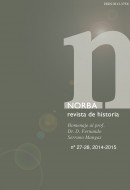
-
Nº 25/26 - Años 2012/2013
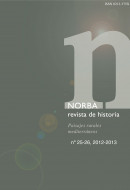
-
Nº 24 - Año 2011
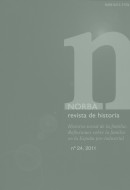
-
Nº 23 - Año 2010

-
Nº 22 - Año 2009
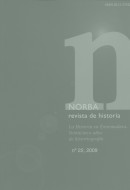
-
Nº 21 - Año 2008
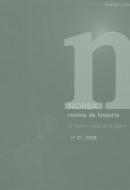
-
Nº 20 - Año 2007
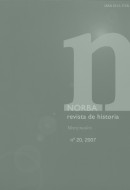
-
Nº 19 - Año 2006
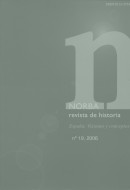
-
Nº 18 - Año 2005
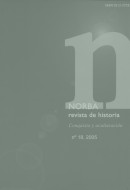
-
Nº 17 - Año 2004
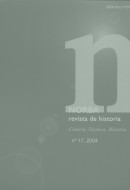
-
Nº 16 (Vol. 1) - Años 1996/2003
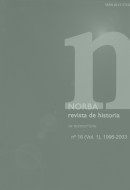
-
Nº 16 (Vol. 2) - Años 1996/2003
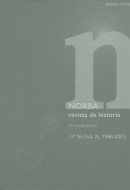
-
Nº 15 - Año 1995
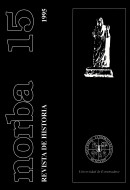
-
Nº 14 - Año 1994
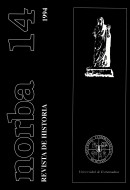
-
Nº 13 - Año 1993
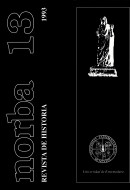
-
Nº 11/12 - Años 1991/1992
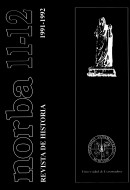
-
Nº 10 - Años 1989/1990
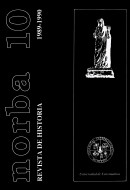
-
Nº 8/9 - Años 1987/1988
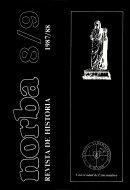
-
Nº 7 - Año 1986
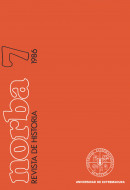
-
Nº 6 - Año 1985
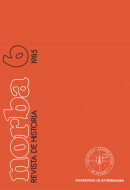
-
Nº 5 - Año 1984
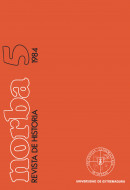
Arriba

 Identifícate
Identifícate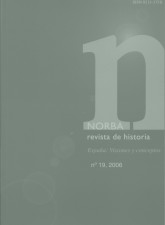
 DESCARGAR PDF
DESCARGAR PDF



 Mapa Web
Mapa Web Contador de Visitas:
Contador de Visitas:
 Dónde Estamos
Dónde Estamos


